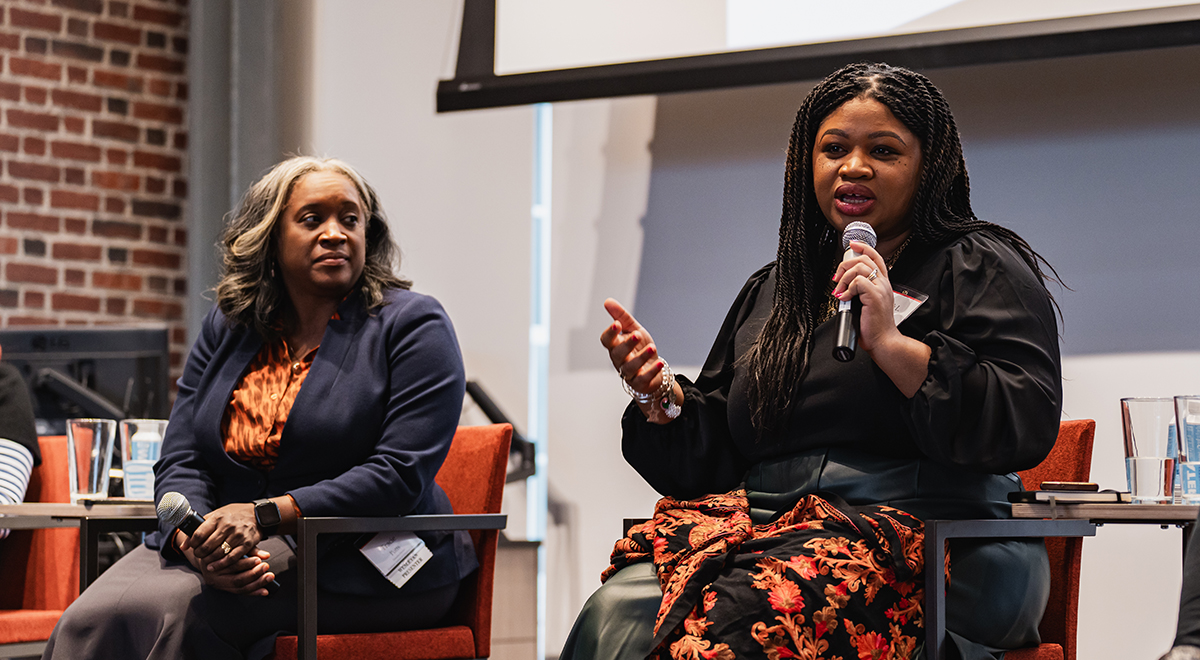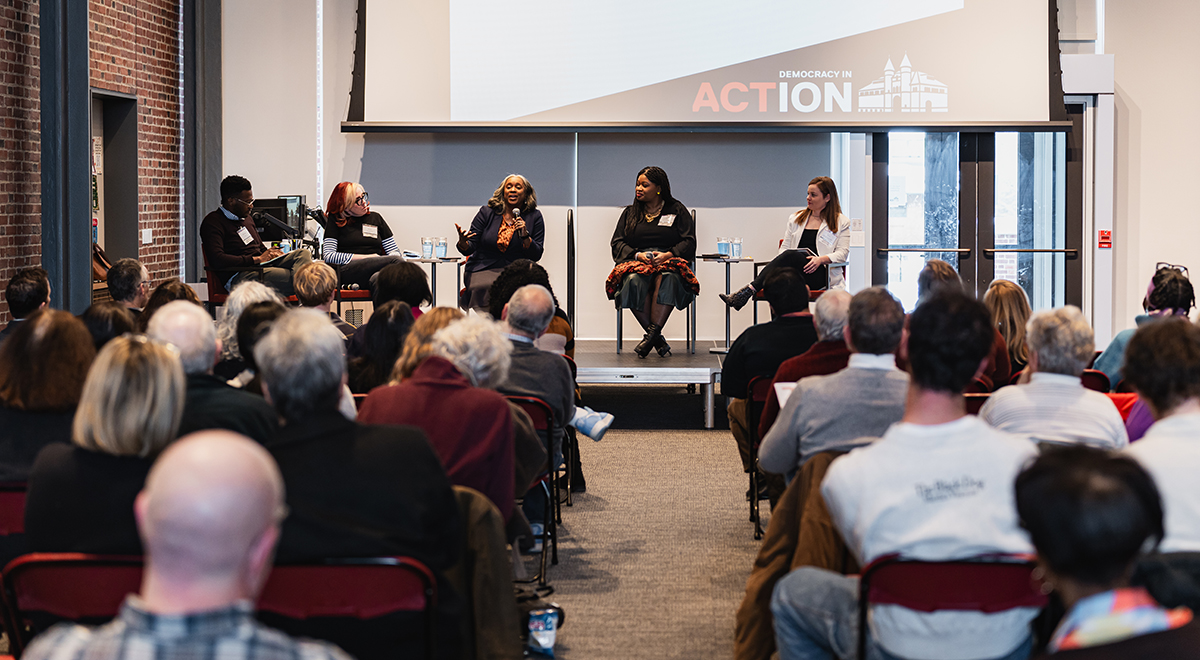With Declines in Local News, Experts Discuss the Implications for Democracy

Earlier this year Tracie Potts, a former NBC correspondent and local media expert, paid a casual visit to the Maryland State House and heard a member of the legislature say something jarring: despite thousands of bills working their way toward becoming laws, you’ll rarely find a reporter covering what’s happening in the chambers at the capitol.
“These are decisions that are being made for us every day,” Potts said, “and here’s an elected member of a state legislature saying, ‘Nobody’s covering us.’”
Potts joined a panel of experts from across the media landscape as part of Wesleyan’s Democracy in Action convening, opining on how decades-long shifts in local news coverage have affected public institutions as well as the public trust. Moderated by Assistant Professor of Government Steven T. Moore, the sprawling conversation raised a range of subjects, including media literacy, the unintended consequences of be-first reporting in an age of instant gratification, and the interplay between national coverage and local media.
Beyond serving as checks on city halls and school boards, local reporters frequently lay foundations for subjects picked up by national outlets, said Molly Jong-Fast, a journalist and host of the podcast Fast Politics with Molly Jong-Fast, whether it’s the rise of movements like Moms for Liberty or the questions swirling around now-ousted congressman George Santos. “There are so many important stories, especially recently, that have come up through local news,” Jong-Fast said.

Traditional media, however, has been in freefall: more than 2,500 newspapers have shuttered since 2005, according to Northwestern University’s Medill School of Journalism, and still more have been hollowed out by hedge funds. And though greater shifts toward national media might lend the body politic a broader sense of the common challenges we face, it’s scrambled our understanding in other ways.
“That loss of local media, local journalism, really creates disincentives for people to engage,” said Khalilah Brown-Dean, a political science professor and host of WNPR’s “Disrupted,” who participated on the panel. “Because it’s easier to be in the echo chamber, it’s easier to say . . . the border crisis is happening far away, without thinking about the immigrant families who are right here in Middletown, who often become targeted just because of who they are, and are totally disconnected from the discourse but feel that impact.”
To reclaim a measure of trust, panelists emphasized a need for greater transparency between outlets and their audiences, who are often unfamiliar with journalistic standards and practices. “How do we actually explain the difference between an opinion article and a news article, or explaining why we covered this particular story that upset a lot of [our] readership?” said Kara Bettis Carvalho, an editor at Christianity Today.
Along with advocating for better oversight and regulation of technologies that enable misinformation and suggesting that universities might step in to train students as entry-level journalists and fill some of the news-gathering void in their communities, panelists stressed the media’s broader obligation to build community-level relationships and hew to the principles of ethical journalism while adapting them to the moment—in particular, what Jong-Fast called embracing a “pro-democracy” bias.
“We don’t have to be left, we don’t have to be right, but we want to keep democracy going, just as a noble pursuit,” she said. “. . . There is a certain urgency now that we did not have in 2004, and I think that it’s okay for writing to reflect that.”

